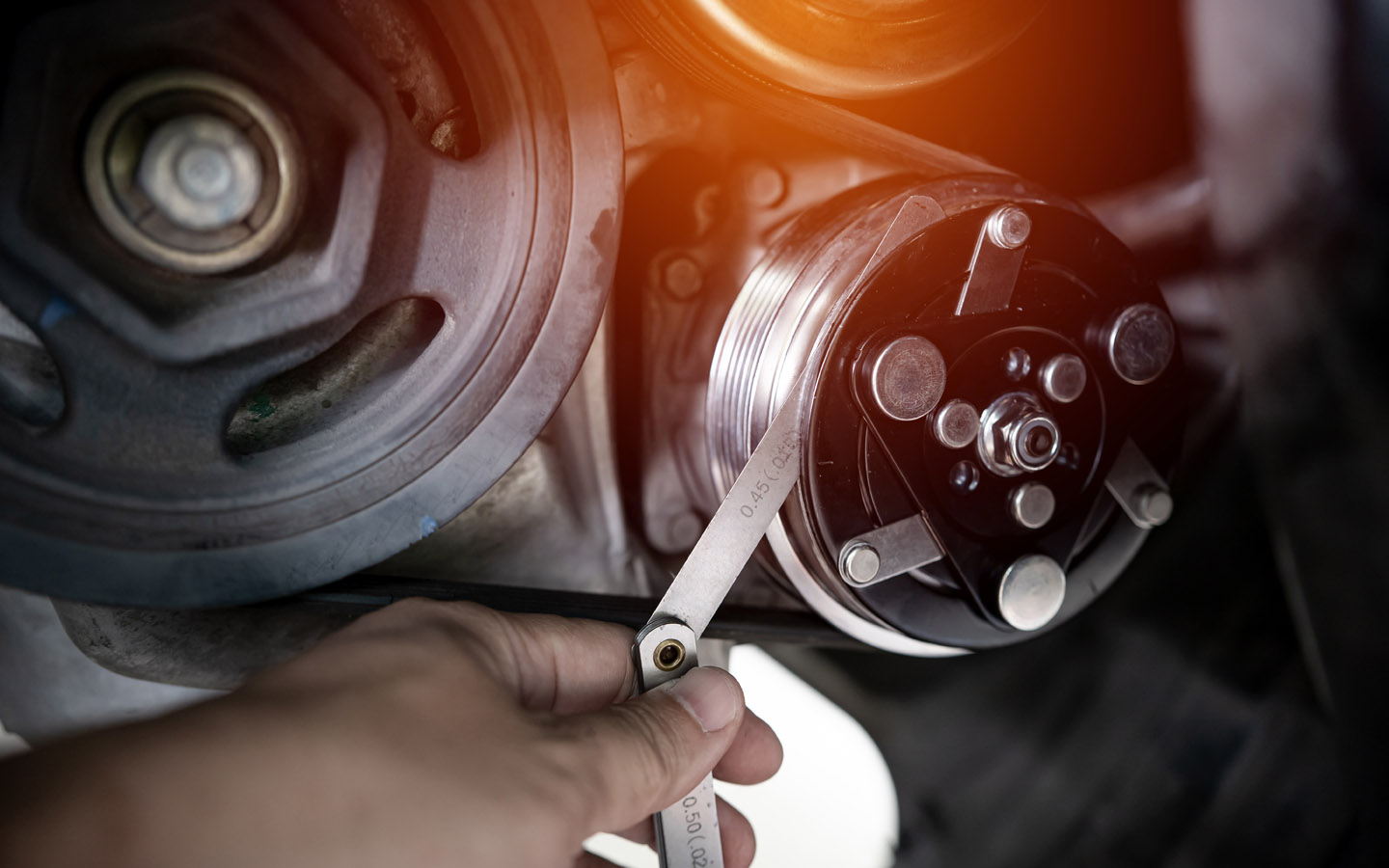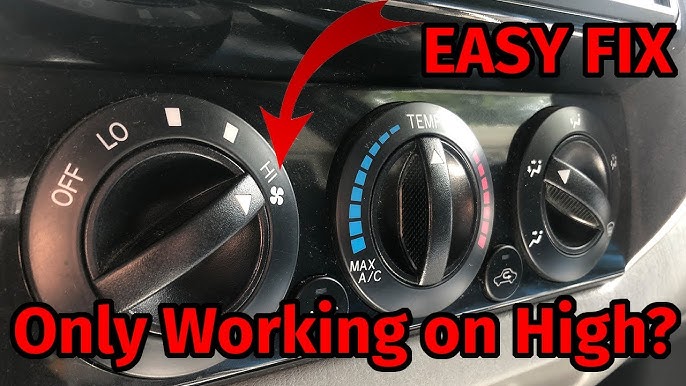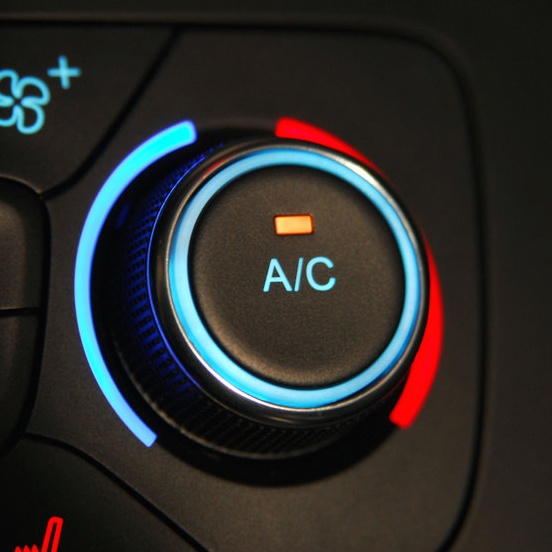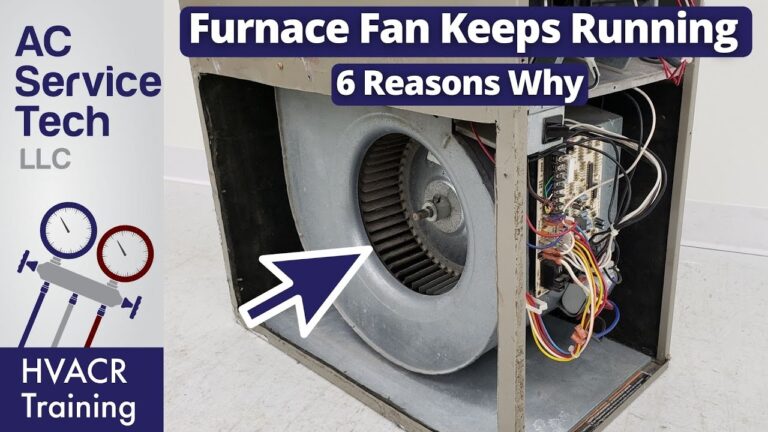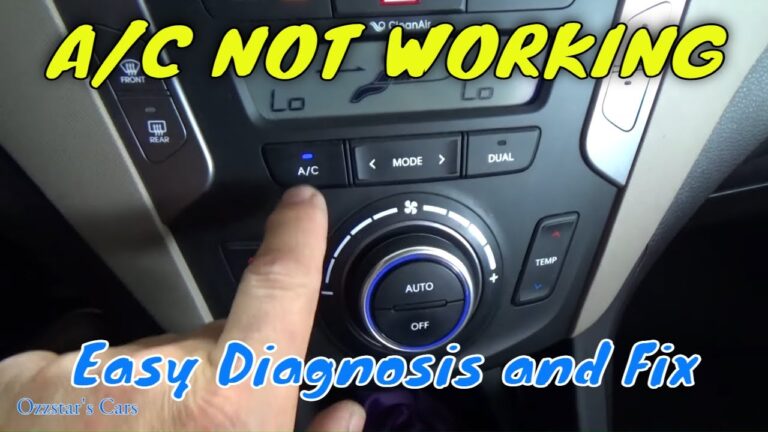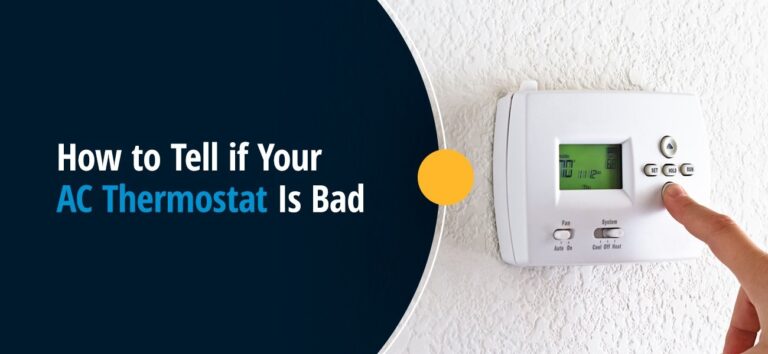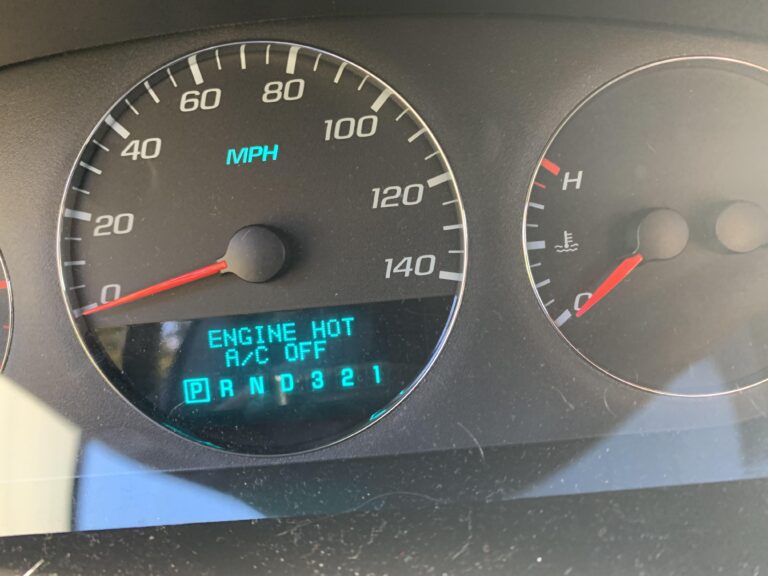Why Does My AC Only Work When I’m Driving? Uncover the Mystery
Your AC might only work while driving because of a weak compressor or low refrigerant levels. These issues can affect cooling performance.
Car air conditioning systems rely on the engine’s power to operate efficiently. When the car is idling, the compressor may not perform as well, leading to reduced cooling. A weak compressor or low refrigerant levels could be the main culprits.
Regular maintenance can help identify these problems early. Ensuring your AC system is in good condition can prevent discomfort during drives. It’s essential to check the refrigerant levels and the compressor’s functionality regularly. Proper upkeep can enhance your car’s AC performance, providing consistent cooling whether you’re driving or stationary.

Credit: www.dubizzle.com
Ac System Basics
Understanding your car’s AC system can help solve issues. A common problem is the AC only working while driving. Knowing the basics can guide you in identifying and fixing the problem.
How Car Ac Works
Your car’s AC system works by compressing and circulating refrigerant. The refrigerant absorbs heat and releases it outside. This cycle cools the air inside your car.
When driving, the engine runs faster. This speeds up the AC compressor. The faster the compressor, the more effective the cooling. This is why your AC may only work when driving.
Key Components
The AC system has several key components. Each part plays a crucial role in cooling your car.
| Component | Function |
|---|---|
| Compressor | Compresses and circulates refrigerant. |
| Condenser | Releases heat from the refrigerant. |
| Evaporator | Absorbs heat from the car’s interior. |
| Expansion Valve | Regulates refrigerant flow. |
| Receiver-Drier | Removes moisture from the refrigerant. |
Each component must work properly. If one fails, the AC system won’t cool effectively.
- Compressor: It’s the heart of the AC system. It compresses refrigerant gas.
- Condenser: It turns high-pressure gas into a liquid.
- Evaporator: It absorbs heat and cools the air inside your car.
- Expansion Valve: It controls the flow of refrigerant into the evaporator.
- Receiver-Drier: It removes moisture and filters the refrigerant.
Regular maintenance can keep these components functioning well. Check your AC system if it works only when driving. It may need servicing or a part replacement.
Driving Vs. Idling
Have you noticed your AC works better while driving compared to idling? This common issue can be puzzling. Let’s explore the reasons behind this phenomenon in our ‘Driving vs. Idling’ section.
Impact Of Motion
When your car is in motion, the airflow increases. This airflow helps cool the AC system. The condenser, which releases heat, benefits from this airflow. The faster you drive, the more air passes over the condenser. This process keeps the system cool and efficient.
At idle, the airflow is minimal. The condenser can’t release heat as effectively. This reduces the AC’s cooling capacity. Motion plays a crucial role in maintaining the AC’s performance.
Engine Performance Factors
While driving, the engine runs at a higher RPM. This higher RPM improves the AC compressor’s performance. The compressor circulates refrigerant through the AC system. More RPM means better refrigerant circulation and cooler air.
At idle, the engine RPM is low. The compressor struggles to maintain efficiency. The engine performance directly impacts the AC’s cooling ability.
Another factor is the alternator’s output. The alternator generates electricity for the car. At higher RPM, the alternator produces more power. This extra power supports the AC system. Driving enhances the alternator’s output, aiding the AC.
Comparison Table
| Condition | Airflow | Engine RPM | Alternator Output |
|---|---|---|---|
| Driving | High | High | High |
| Idling | Low | Low | Low |
Understanding these factors can help you maintain a cooler car. Always ensure your AC system is well-maintained. Regular checks and servicing can prevent issues.
Refrigerant Levels
One common reason your AC only works while driving is low refrigerant levels. The refrigerant is crucial for cooling air in your car. Without enough refrigerant, your AC system struggles.
Signs Of Low Refrigerant
Low refrigerant can show several signs. Here are some of them:
- AC blows warm air
- Strange noises from the AC unit
- Visible leaks or puddles under the car
- Frequent cycling of the AC compressor
Recharging The System
To recharge the AC system, follow these steps:
- Turn off your car and open the hood.
- Locate the low-pressure port of the AC system.
- Attach the refrigerant canister to the port.
- Start your car and turn on the AC to the highest setting.
- Release the refrigerant into the system.
- Monitor the pressure gauge and stop once it reaches the desired level.
Recharging the system can restore cool air in your car. If you are not comfortable doing this, seek help from a professional.
Electrical Issues
When your AC only works while driving, electrical issues might be the culprit. The car’s electrical system plays a crucial role in AC functionality. Let’s dive into some common electrical problems that might cause this issue.
Faulty Wiring
Faulty wiring can disrupt the power supply to your AC system. Wires can become frayed or disconnected. This interrupts the flow of electricity.
Common symptoms of faulty wiring include:
- AC works intermittently
- AC stops working when the car is idle
- Blown fuses
Checking and fixing the wiring can restore your AC’s functionality. Ensure all connections are secure. Replace any damaged wires.
Blown Fuses
Blown fuses can also prevent your AC from working properly. Fuses protect your car’s electrical circuits. When they blow, the circuit breaks.
Signs of blown fuses include:
- AC not turning on at all
- AC only works while driving
- Other electrical components malfunctioning
Replacing blown fuses can often resolve the issue. Always use the correct type of fuse. Check your car’s manual for specifications.
Compressor Problems
Your car’s air conditioning system relies heavily on the compressor. If your AC only works when you’re driving, the compressor might be the culprit. It plays a crucial role in cooling your car, and any issue with it can affect performance.
Role Of The Compressor
The compressor is the heart of your car’s AC system. It compresses the refrigerant and circulates it through the system. This process cools the air before it enters your car.
When driving, the engine runs at higher RPMs, which can help the compressor function better. At idle or low speeds, the compressor may struggle if it’s faulty.
Common Compressor Failures
There are several common compressor failures that can cause your AC to only work while driving:
- Refrigerant Leaks: Low refrigerant levels can cause the compressor to fail.
- Clogged Condenser: Dirt or debris can block the condenser, affecting the compressor.
- Electrical Issues: Faulty wiring or a blown fuse can stop the compressor.
- Worn-Out Clutch: The clutch may not engage properly, affecting the compressor.
| Failure Type | Impact on Compressor |
|---|---|
| Refrigerant Leaks | Reduces refrigerant, causing poor cooling |
| Clogged Condenser | Blocks airflow, reduces efficiency |
| Electrical Issues | Stops compressor from running |
| Worn-Out Clutch | Prevents compressor engagement |

Credit: www.dubizzle.com
Maintenance Tips
Maintaining your car’s AC system is crucial for optimal performance. Regular upkeep can prevent issues like your AC only working while driving. These maintenance tips can help keep your AC in top shape.
Regular Inspections
Regular inspections are essential for a healthy AC system. Check the AC system every few months. Look for any visible leaks or damage. Make sure the refrigerant level is adequate.
Keep an eye on the AC compressor. A failing compressor can cause issues. Inspect the AC condenser and evaporator for blockages. Clean any debris around these components.
Inspect the cabin air filter. A dirty filter can reduce airflow. Replace the filter if it looks dirty or clogged.
Professional Servicing
Professional servicing ensures your AC system works well. Schedule a service at least once a year. A professional can identify hidden issues.
During a service, technicians check the refrigerant levels. They can refill or replace it if needed. They also inspect the entire AC system for wear and tear.
Professional servicing includes detailed cleaning. Technicians clean the AC components thoroughly. This prevents blockages and ensures smooth airflow.
| Maintenance Task | Frequency |
|---|---|
| Visual Inspection | Every 3 months |
| Check Refrigerant Level | Every 6 months |
| Replace Cabin Air Filter | Every 12 months |
| Professional Servicing | Annually |
- Visual Inspection: Look for leaks, check compressor, clean debris.
- Refrigerant Check: Ensure adequate levels, refill if needed.
- Cabin Air Filter: Inspect and replace if dirty or clogged.
- Professional Service: Annual checkup, detailed cleaning, hidden issue detection.
Credit: www.dubizzle.com
Frequently Asked Questions
Why Does My Ac Work Only When The Car Is Moving?
Your AC may work only when the car is moving due to a faulty condenser fan, low refrigerant, or a weak compressor.
Why Does My Ac Work Only When The Car Is Moving?
Your AC might work only when the car is moving due to a weak compressor or low refrigerant levels. Check for leaks.
Why Does My Ac Only Cool When Driving?
Your AC may only cool while driving due to a failing compressor, low refrigerant, or a clogged condenser. Check for leaks and ensure proper maintenance.
Conclusion
Understanding why your AC only works while driving can help you troubleshoot the issue better. Regular maintenance and timely repairs can prevent such problems. Always consult a professional if you notice persistent issues. Ensuring your car’s AC functions properly enhances your driving comfort and vehicle longevity.
Stay cool on the road!

